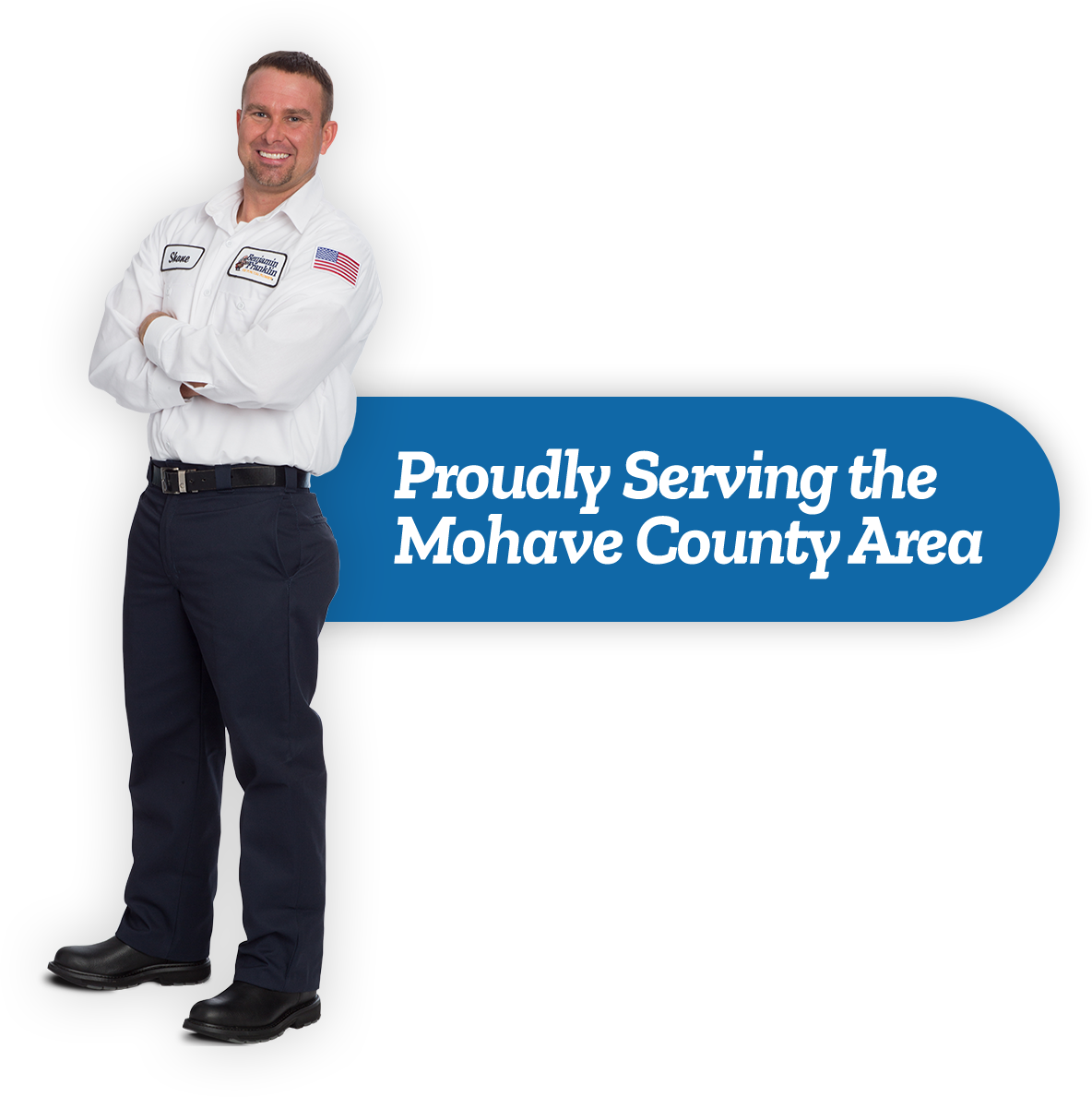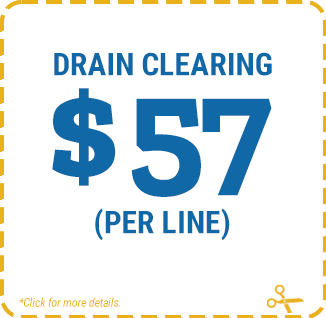Arizona Plumbing Emergencies: What to Do
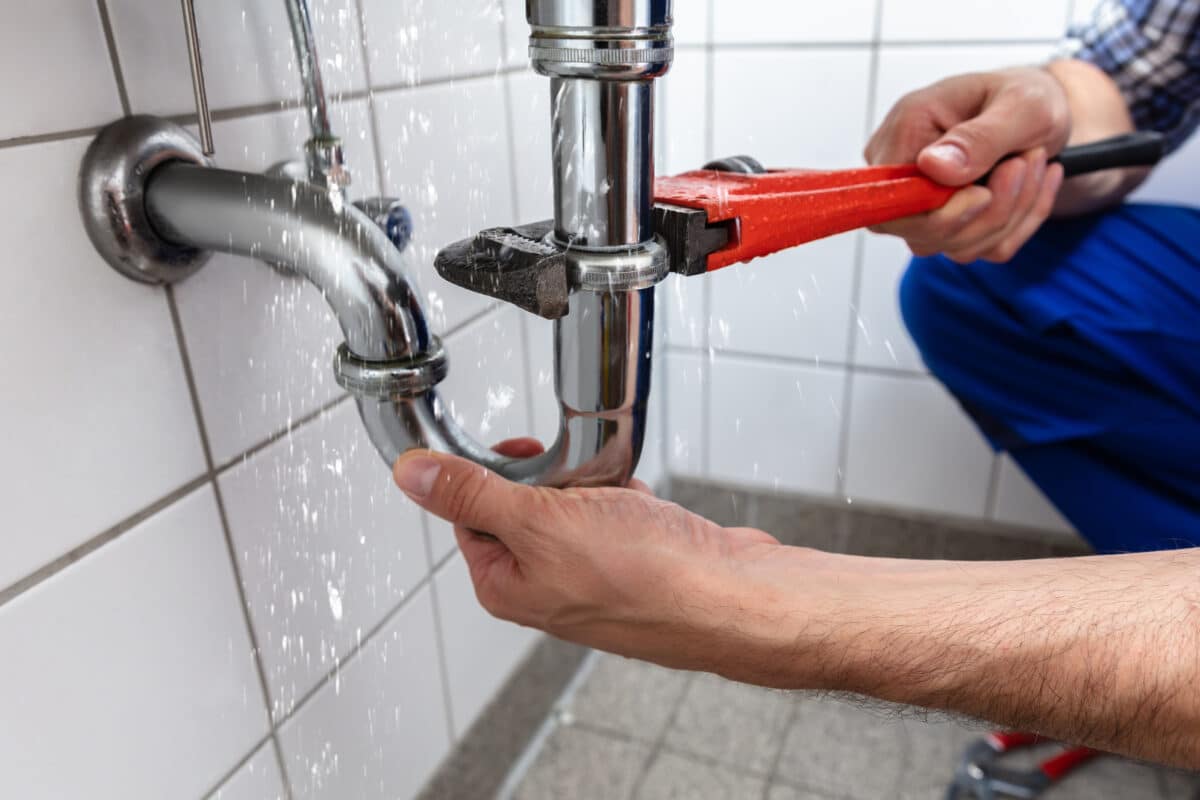
Plumbing emergencies – can turn a calm day into chaos, and without immediate action, the damage can quickly escalate. Whether it’s a burst pipe flooding your home, a sewer backup posing health risks, or a malfunctioning water heater disrupting daily life, these emergencies require urgent attention.
Arizona’s extreme weather—from searing summer heat to unexpected freezing nights—heightens the likelihood of plumbing problems. Acting fast by shutting off your water and contacting a certified plumber can prevent costly repairs. With regular maintenance, homeowners can safeguard their property and avoid these stressful, high-risk situations.
Common Plumbing Emergencies in Arizona
In Arizona, plumbing emergencies are often triggered by the state’s extreme weather conditions and older infrastructure. Here are some of the most common plumbing emergencies in the region:
-
Burst Pipes
Burst pipes are among the most severe plumbing issues, especially during Arizona’s colder months when temperatures can unexpectedly drop at night. Freezing water inside the pipes can expand, causing them to rupture. Other causes include corrosion and high water pressure. Immediate action—like shutting off the main water valve—is critical to prevent flooding.
-
Clogged Toilets and Drains
Clogged drains or toilets are frequent issues, especially in areas with hard water. Build-up from minerals, grease, or debris can block the plumbing, leading to backups. When severe, this can cause flooding and unsanitary conditions, requiring a professional plumber for thorough cleaning.
-
Water Heater Malfunctions
Arizona’s fluctuating weather can strain water heaters. Issues like inconsistent hot water, leaks, or strange noises indicate a malfunction. Since hot water is essential, especially in cooler months, quick repair or replacement is needed to restore normal operation.
-
Leaking Fixtures
Leaking faucets, showerheads, or toilets not only waste water but can cause significant damage if ignored. Over time, these small leaks add up, potentially leading to mold growth, higher water bills, and more complex plumbing problems.
-
Sewer Line Backups
A sewer line backup is a serious problem that can affect multiple drains in your home. This can result in slow drainage, foul odors, or even raw sewage backing up into your living space. It requires immediate professional intervention to prevent health hazards and structural damage.
These emergencies can occur at any time, making regular maintenance and inspections crucial to avoid sudden, costly repairs. Homeowners should remain vigilant and address minor issues before they escalate into full-blown emergencies.
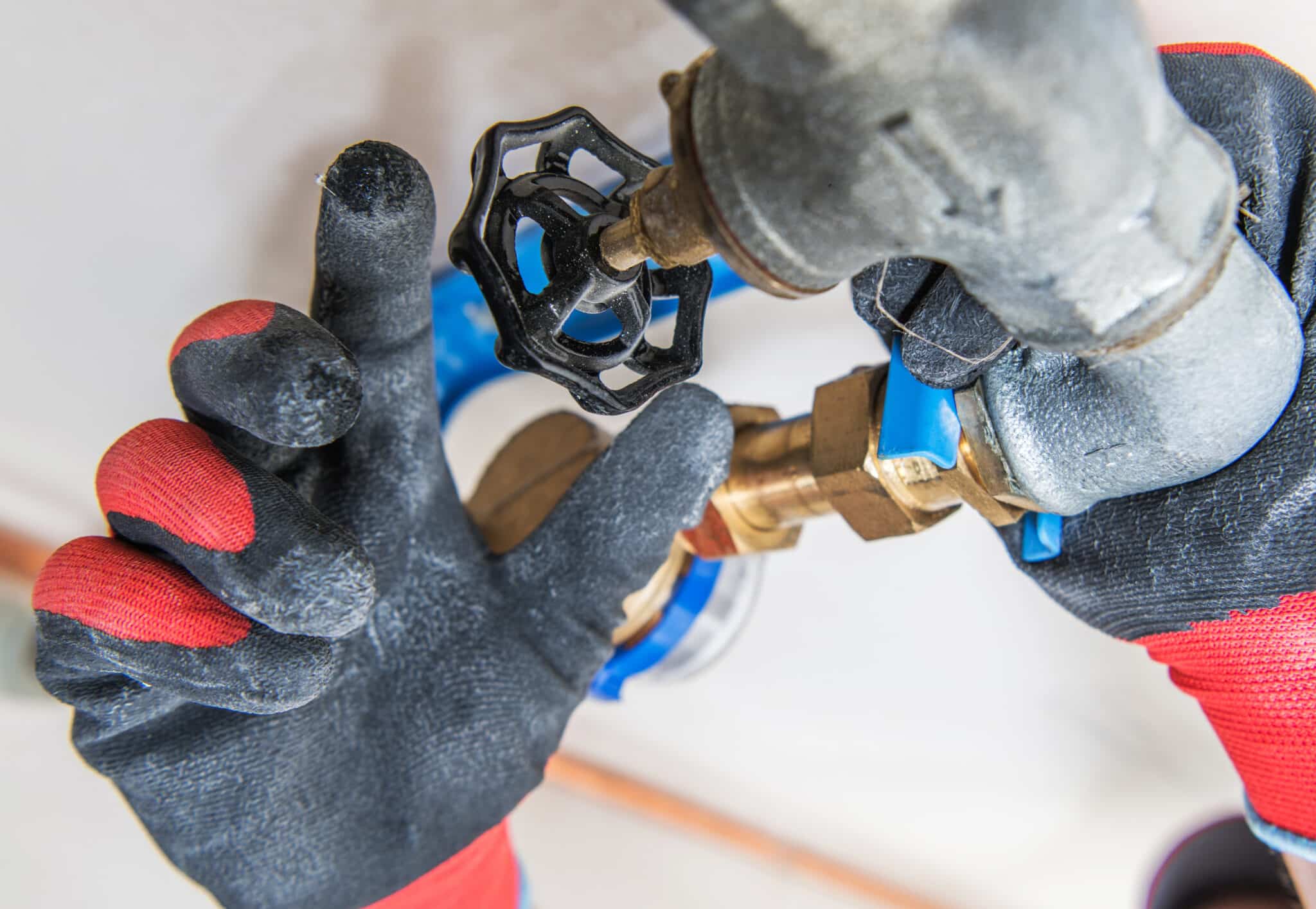
Photo from iStock – Credit: welcome
How to Respond to Burst Pipes
When a pipe bursts, fast and decisive action can save you from serious water damage. Here’s how to respond effectively:
Shut Off the Water Immediately
The first step is to locate and close the main water valve. This halts the flow of water, preventing flooding and reducing further damage. Knowing where the valve is beforehand can save you crucial time.
Drain the System
Open all faucets to drain the remaining water from your pipes. This reduces pressure on the burst pipe and prevents more water from escaping. Don’t forget to flush your toilets as part of this process.
Turn Off Your Water Heater
If your water heater is still running, turn it off to avoid overheating. Without water flowing into the system, keeping the heater on can cause damage to the unit.
Look for Other Potential Damage
After stopping the water flow, inspect other parts of your home for leaks or structural damage. Burst pipes often lead to secondary issues that may not be immediately visible.
Call a Licensed Plumber
Burst pipes need professional attention. Contact an emergency plumber right away to assess the damage and make necessary repairs.
Document Everything
Take photos and write down details about the damage. This is helpful if you need to file an insurance claim.
Taking these steps quickly can help reduce the damage and save you from expensive repairs.
Managing Clogged Drains and Toilets
Clogged drains and toilets are among the most frustrating plumbing emergencies, but quick action can prevent a minor issue from becoming a costly disaster. Here’s how to manage these common problems effectively:
Start with a Plunger
A plunger is the simplest tool for clearing blockages in both toilets and drains. For toilets, use a flange plunger, which creates a tight seal and forces water down the pipe, helping to dislodge the clog. For sinks or shower drains, a cup plunger works well. Be patient and use steady pressure.
Avoid Harsh Chemicals
It’s tempting to reach for chemical drain cleaners, but these products often do more harm than good. Harsh chemicals can corrode your pipes, especially in older systems, and don’t always clear the clog entirely. In the long run, they may cause more damage and lead to bigger plumbing emergencies.
Try a Drain Snake
If plunging doesn’t work, a drain snake can help break up stubborn blockages deeper in the pipe. This tool is especially useful for bathroom sinks and tub drains, where hair and soap scum often cause clogs. Insert the snake carefully and twist it to catch and pull out the debris.
Shut Off the Water for Toilets
When dealing with an overflowing toilet, turn off the water supply valve at the base of the toilet immediately. This prevents more water from flowing into the bowl while you work to clear the blockage, reducing potential damage and mess.
Call a Professional if Needed
If the clog persists after these efforts or if it keeps happening, it’s time to call in a professional plumber. Frequent clogs may signal a bigger issue, such as tree roots invading your sewer line, which requires expert attention.
Preventing clogs altogether is the best way to avoid emergencies. Be mindful of what you flush and regularly clean your drains to keep things flowing smoothly.
Addressing Water Heater Failures
For homeowners in Kingman, AZ, unexpected water heater failures can quickly escalate into plumbing emergencies, leaving you without reliable hot water just when you need it most. As temperatures drop, understanding the common issues with water heaters in Kingman can help you avoid costly disruptions.
Sediment buildup is a frequent issue in Kingman, where minerals from the water supply settle at the bottom of the heater tank. Over time, this reduces efficiency and forces the heater to work harder, which can lead to overheating or even breakdowns. Flushing your tank regularly helps prevent sediment from accumulating, ensuring your water heater runs smoothly and lowering the risk of a plumbing emergency.
Malfunctioning thermostats are another common cause of water heater problems. If your water temperature is inconsistent or not heating properly, a faulty thermostat may be to blame. Replacing a malfunctioning thermostat early can prevent sudden breakdowns, saving you from an inconvenient plumbing emergency.
Finally, leaks can signal a serious issue. In Kingman’s climate, water heater leaks often stem from corrosion or pressure problems. Even a small leak can escalate into a significant plumbing emergency, causing water damage or mold growth. Addressing leaks quickly keeps your home protected and prevents further complications.
Handling Leaking Fixtures
Leaking fixtures may seem like minor inconveniences, but they can quickly lead to plumbing emergencies if not addressed. From wasted water to costly repairs, ignoring even a small drip can result in bigger issues. Here’s a step-by-step approach to tackling leaks effectively to prevent unexpected plumbing emergencies.
-
Identify and Replace Worn-Out Seals and Washers
Worn-out seals and washers are among the most common causes of leaking fixtures. Over time, these parts degrade and fail to hold a tight seal, resulting in persistent drips. Replacing them promptly can prevent a minor leak from escalating into a plumbing emergency. Regular inspections can also help you spot early signs of wear before they worsen.
-
Examine Fixtures for Corrosion
Corrosion often affects older fixtures, especially those made from certain metals prone to rust. As corrosion weakens metal surfaces, cracks can form, leading to leaks that quickly escalate. Upgrading corroded fixtures with modern, corrosion-resistant alternatives not only prevents leaks but also reduces the chance of future plumbing emergencies.
-
Check and Tighten Loose Connections
Temperature fluctuations and daily usage can loosen fixture connections, causing water leaks around faucet bases or handles. Tightening these connections can stop minor leaks, but regular inspections and maintenance are essential to keep them secure and prevent unexpected plumbing emergencies.
-
Regulate Water Pressure
High water pressure can stress pipes and connections, increasing the risk of fixture leaks. Installing a pressure regulator helps maintain safe water pressure levels, which not only protects your fixtures but also prevents sudden plumbing emergencies by reducing strain on your entire plumbing system.
By following these steps, you can effectively manage leaks, avoid costly plumbing emergencies, and keep your home’s plumbing system in optimal condition.
Dealing with Sewer Line Backups
Sewer line backups are a serious concern for homeowners, often leading to extensive cleanup, unpleasant odors, and costly repairs if left unresolved. Being proactive in managing sewer line health can significantly reduce the risk of these unpleasant plumbing emergencies. Here are some effective strategies to prevent backups before they happen.
Recognize Early Indicators of a Backup
Many plumbing emergencies involving sewer lines start with subtle warning signs. Slow drains, gurgling toilets, and unpleasant odors from sinks or showers are all signs of a potential sewer line issue. Responding to these red flags quickly can prevent a minor inconvenience from turning into a full-blown plumbing emergency. Addressing these early symptoms can save you money and minimize the hassle of extensive repairs.
Avoid Flushing Problematic Items
One of the primary causes of sewer line blockages is the improper disposal of items down the drain. Flushing wipes, paper towels, and other hygiene products can create blockages that are tough to remove. These items do not break down like toilet paper, leading to stubborn clogs over time. Educating household members on what should and shouldn’t go down the toilet is a simple yet highly effective way to protect your sewer line from clog-related plumbing emergencies.
Manage Tree Root Growth Around Sewer Lines
Tree roots are naturally attracted to the moisture in sewer lines, which makes them a leading cause of sewer line damage and backups. Roots can infiltrate small cracks and grow inside the pipes, eventually creating serious blockages. Scheduling regular professional inspections and root-clearing services can prevent roots from causing a backup, saving you from unexpected repairs and messy plumbing emergencies.
Conduct Regular Sewer Line Maintenance
Preventive maintenance is essential for keeping sewer lines in good working order. Services like hydro jetting or drain snaking can clear out debris, grease, and small blockages before they escalate. Investing in regular maintenance helps avoid sudden plumbing emergencies and keeps your sewer system functioning optimally. Proactive maintenance not only prevents backups but also extends the life of your sewer line, providing peace of mind for years to come.
Following these preventive measures enables homeowners to manage their sewer lines effectively, reducing the disruptions, costs, and headaches associated with plumbing emergencies. Acting now can save valuable time, money, and stress down the road.
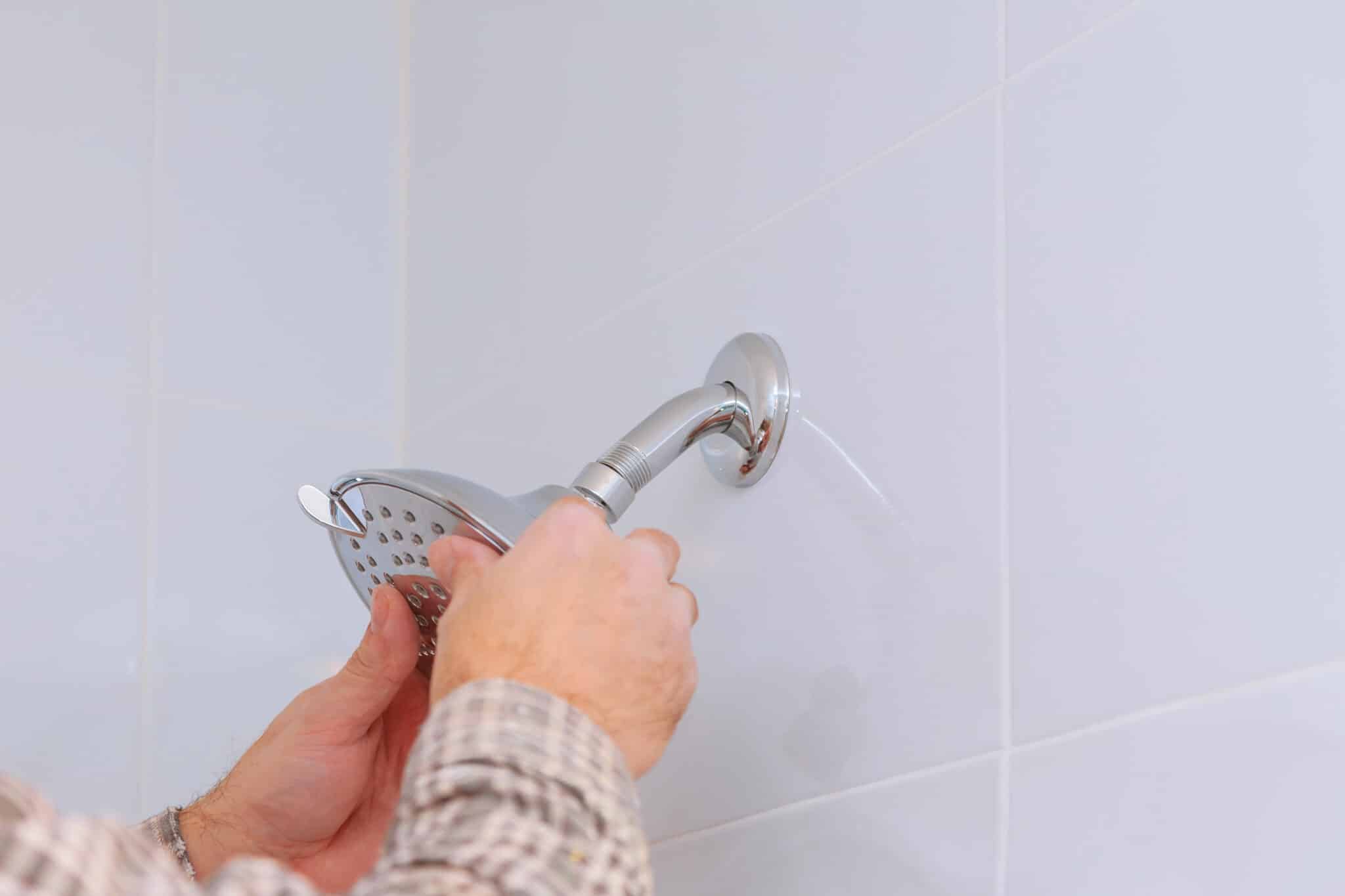
Photo from iStock – Credit: EyeEm Mobile GmbH
Preventive Measures to Avoid Emergencies
Plumbing emergencies are more than inconvenient; they can cause extensive damage, disrupt routines, and lead to costly repairs. The good news is that many plumbing issues can be avoided with a few simple preventive measures. Here’s a guide to protecting your home’s plumbing system from unexpected breakdowns.
-
Check and Maintain Faucets, Showerheads, and Toilets
Small leaks or drips from fixtures like faucets and showerheads may not seem urgent, but they often signal early signs of wear. Regularly inspecting these fixtures and replacing worn-out washers, seals, or gaskets helps stop minor issues from turning into major plumbing emergencies. This preventive action not only conserves water but also reduces the chances of surprise repair costs.
-
Practice Smart Drain Management
One of the most common plumbing issues is a clogged drain, often caused by food scraps, grease, hair, or hygiene products going down the sink or toilet. Keeping these items out of drains and using drain guards to catch debris can prevent clogs. When drains stay clear, the risk of blockages and the need for emergency plumbing services is significantly lower.
-
Plan Regular Sewer Line Maintenance
Sewer line backups are serious plumbing emergencies that can lead to messy and costly repairs. To prevent this, consider scheduling regular sewer line inspections, especially if you live in an area with older plumbing or have large trees nearby. Professionals can spot and clear potential blockages, like root intrusions or sludge buildup, long before they cause problems.
-
Control Water Pressure
While high water pressure may feel powerful, it can place stress on pipes and fixtures, leading to leaks or burst pipes over time. A water pressure regulator keeps the pressure within safe limits, extending the life of your plumbing system and minimizing the chance of unexpected emergencies.
-
Protect Pipes in Cold Weather
Winter poses a unique challenge for plumbing. Exposed or outdoor pipes can freeze and burst when temperatures drop, leading to flooding and costly repairs. Preparing pipes for winter—by draining outdoor hoses, insulating exposed pipes, and keeping a small drip in indoor faucets during freezes—can prevent this seasonal emergency.
These preventive measures are simple yet highly effective ways to avoid plumbing emergencies. A few routine checks and mindful habits can go a long way toward protecting your plumbing system and keeping repair costs low.
Why Professional Help is Crucial
When plumbing issues arise, professional help can make the difference between a quick solution and a costly plumbing emergency. Professionals bring expertise to accurately diagnose the root of the problem and provide lasting repairs, reducing the risk of repeat issues and future disruptions.
Equipped with specialized tools—like hydro-jetters for clearing deep clogs and inspection cameras for sewer lines—professionals can handle complex repairs with precision. Their work not only fixes immediate problems but also identifies potential risks early, preventing plumbing emergencies before they occur.
Additionally, licensed plumbers ensure all repairs meet safety and regulatory standards, giving homeowners confidence that their plumbing system is efficient and safe. By choosing professional support, you save time and avoid the stress of potential mishaps, knowing the job is done right. Ultimately, professional expertise safeguards your home, minimizes unexpected costs, and keeps your plumbing running smoothly.
FAQ
-
What should I do when my toilet overflows?
During plumbing emergencies like an overflowing toilet, turn off the water valve located at the base of the toilet immediately. Use a plunger to clear the clog if possible. If this fails, call a professional plumber to prevent further damage.
-
How can I prevent pipes from freezing in winter?
To avoid plumbing emergencies from frozen pipes, insulate exposed pipes and allow faucets to drip during extreme cold. Open cabinets to let warm air circulate around indoor pipes.
-
Can I temporarily fix a leak while waiting for a plumber?
Yes, minor leaks can be managed by wrapping plumber’s tape around the leaking area. However, this is a temporary solution; consult a plumber for lasting repairs during plumbing emergencies.
-
What are the warning signs of a sewer backup?
In plumbing emergencies like sewer backups, warning signs include slow-draining sinks, gurgling sounds, foul odors, or sewage backing up in lower-level drains. Contact a plumber immediately if you notice these signs.
-
How often should I schedule maintenance to prevent plumbing emergencies?
Annual inspections help prevent plumbing emergencies by identifying potential issues early. Regular maintenance reduces the risk of sudden breakdowns, saving time and expense.
For trusted, fast solutions to plumbing emergencies, rely on Benjamin Franklin Plumbing of Mohave County. Our experienced team is dedicated to restoring your home’s safety and functionality with dependable, professional service.











